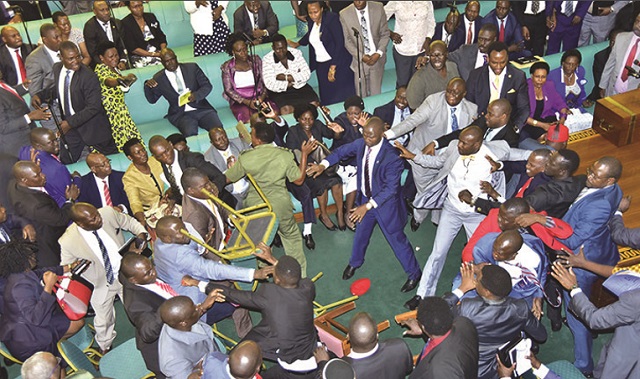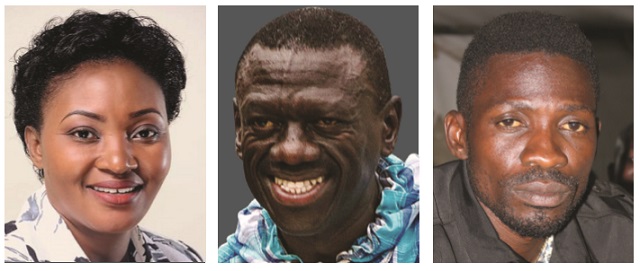
As Museveni grows older investor confidence is diming because, a Kampala-based political risk analyst told The Independent on conditions of anonymity, even investors who have always seen his government as one that faces risk of turmoil every five years are not sure how long he will retain the muscle to cling on despite his 31-year stable and resilient grip.
“There is no doubt the current situation is a blow to Uganda’s profile as an investment destination,” the risk analyst noted, “Investors are looking on with worry and concern.”
He added that the biggest concern is that by the end of this term, President Museveni will have been 35 years in power, has no successor and no visible succession plan.
“That creates a situation of uncertainty that is discouraging to long term investors,” the analyst noted.
Other experts also note that no country can transform on the basis of FDI alone and that local investors and manufacturers must be the drivers of the transformation with FDI playing a complementary role.
But, critics point out for instance, that poverty levels have recently increased from 20 per cent in 2013-14 to 27 per cent in 2016-17, according to the latest report by Uganda Bureau of Statistics. And the increasing poverty is fuelling frustration against Museveni.
Failure by government to pay arrears after the 2016 elections has also been raised as another issue, which has led to the collapse of several businesses. This means fewer jobs.
Political paralysis
Dramatic developments in the local economy, such as the troubles and eventual collapse of Crane Bank, which was Uganda’s fourth largest bank before the central bank closed it, add to the dark financial mood. And, according to some critics, it is sometimes driven by Museveni’s politics of survival.
In the Crane Bank case, for example, the critics says although it had many problems internally, Museveni could still have stepped in to save such a huge venture but opted out because of his survival politics. Museveni, some say, was aware that many Ugandans erroneously believed that Sudhir was a mere front for the First Family’s alleged ownership of Crane Bank and he did not want to appear to confirm a falsehood and risk political capital. Others say, the demise of Crane Bank also meant clipping the growing wings of Sudhir Ruparelia who owing to his wealth—was the richest man in Uganda—was seen as a political threat. Opposition leaders, including Kizza Besigye frequented the bank in the 2016 election period and tabloids carried unverified stories of Sudhir funding their campaign.
If, as another critic who commented on conditions of anonymity noted, that Museveni’s government appears paralysed by machinations of survival politics, the Crane Bank saga is a perfect example.
Museveni has a firm grip on power but is managerially incapable of using that power to improve the economy and lift Uganda’s vast pospulation out of poverty, he added.
In the past, the official added, there has been substantial economic growth of over 5 percent but this has been wiped out by a high population growth rate. As a result, there has not been transformation, that is, industrialisation, or a well-trained workforce, jobs, and agriculture commercialisation. Instead, the education, health, and other social services are very poor.
“You have no genuine transformation agenda or meaningful democratisation,” the critic noted, “The peace and stability you talk about is irrelevant to the youth who never saw war. What they see is a failed manager of the economy who relies on police repression and commercial use of politics to stay in power.”
However, amidst of all this, Museveni’s handlers say he must stay on because he is a uniting factor and the only sure bet for Uganda’s development ambitions.

****
 The Independent Uganda: You get the Truth we Pay the Price
The Independent Uganda: You get the Truth we Pay the Price




I need to get more and more importantly
yes, he is the number one uganda’s enemy.
yes, he is the number one uganda’s enemy of progress.
Indeed M7 is the African Problem these days. The so called African democratic countries which are trying to bring peace and sanity to Somalia are involved in destabilizing their own respective home countries. They are every day detaining the opposition and using military police to stop free speech and a peaceful transition of political leadership in their own backyard. In some of these countries the police is trigger happy arresting women and children and shooting them point blank with live bullets.
This whole African Union political charade in Somalia and Sudan, is like former Saddam Hussein of Iraq trying to liberate Kuwait.
What has gone wrong with Ruanda when you handcuff women who have said something different from yours?
It is not an African culture to handcuff a lady who does not agree with you in ideas. That is an abuse these days.